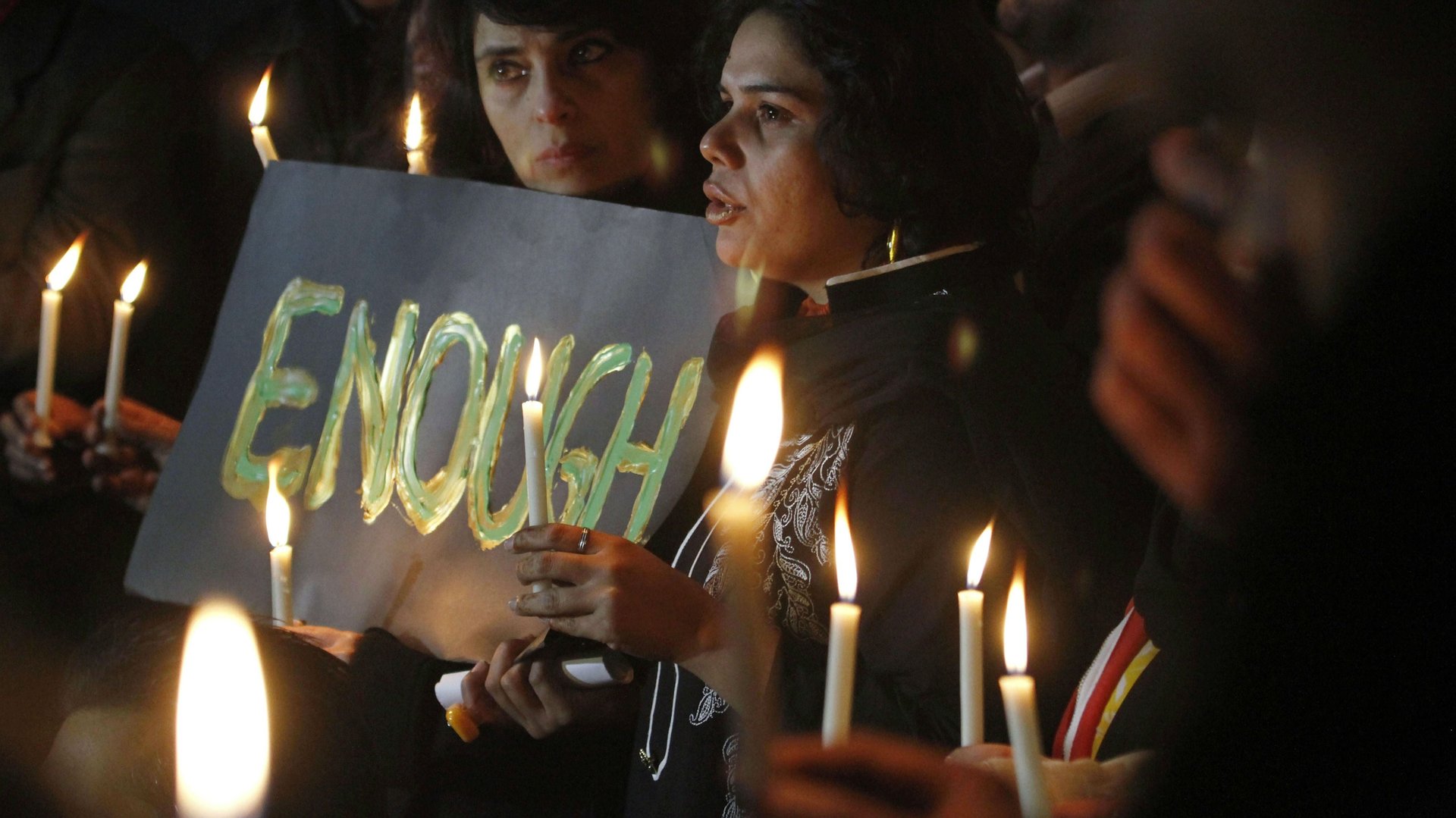To my fellow Pakistanis, we need to look in the mirror
To my friends in Pakistan:


To my friends in Pakistan:
Tonight, we mourn. And so we must.
But we must also reflect: what do we mourn, and why? As we change our profile pictures or organise vigils or, as I have done for the past few hours, stare into the blankness, paralysed, we must ask: why are we so shocked? What is it about this tragedy that has shaken us so?
Is it the sheer scale of it? It simply cannot, must not be: would it be less of a tragedy if, instead of 132 (at the time of writing) innocent children shot dead in their classrooms by the Taliban, the headlines read 32 innocent children shot dead in their classrooms by the Taliban? What about two innocent children shot dead in their classrooms by the Taliban?
Where do we draw the line between the tragic and the mundane? Are we so numb that it takes 132 innocent dead children for us to register a tragedy? What is the tragic value of one innocent dead child?
We must, as we mourn, search ourselves for the answers to these questions because—and let us be in no doubt about this—each of us who lives to mourn owes a debt to the dead whom we mourn. It could have been any of us instead of them. It could have been our children instead of them. (It wasn’t, today, but tomorrow it may be.)
So, as we mourn tonight, let us not forget this. More importantly, let us not forget this tomorrow as we carry on with our lives, lives which we have and they don’t by pure happenstance.
To even come close to discharging the debt we owe the dead, we must, collectively, look at ourselves and ask: who are we as a nation, and how did we get here, a place where children are slaughtered by the dozens in their classrooms?
It is easy, far too easy, for us to simply blame the Tehreek-e-Taliban Pakistan (TTP). Of course, the TTP is responsible for this and many other tragedies, and, of course, the state must dismantle its network with all tools at its disposal. But we are not merely a society where children are slaughtered in their classrooms by the TTP. We are also a society where those who lead us curry favours with convicted terrorists of many shades and affiliations; where people are lynched, publicly and with complete impunity, by mobs, by us, in the name of religion; and where elected officials get elected on a platform of ‘talks’ with the very people we condemn today.
If our mourning is to have any meaning greater than an instinctive, knee-jerk response to the sheer scale of the tragedy, we must confront these truths about ourselves and find that we are not merely hapless victims of a war by an unidentified enemy. We have condoned, if not nurtured, the conditions in which this enemy exists and thrives. If our mourning is to have any meaning, we must change these conditions.
So, tonight, we mourn. Tomorrow, we must change.
We simply cannot afford to go back to our petty squabbles and finger-pointing, our fantasies of foreign hands, our notions of grandeur and “strategic assets,” and, most crucially, the preposterous idea that “talks” with terrorists amount to anything other than unconditional surrender to them.
We owe at least this much to the memory of those we mourn tonight.